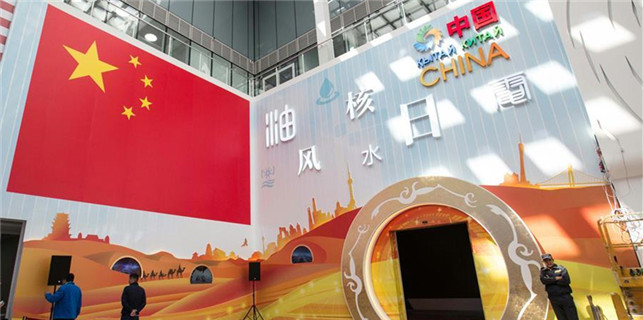California jumps into China's Belt and Road Initiative for clean energy
LOS ANGELES - Some might think a trillion-US-dollar super highway connecting Europe and Asia has little to do with California, but Governor Jerry Brown pointed out they would be wrong.
In the trillion dollar clean energy field, the America's most populous state hopes to bolster climate partnerships with China, making joint efforts to push green and low-carbon development.
Local experts said it was the reason why California welcomed the Belt and Road Initiative (BRI), which proposed forever linking 70 percent of the world's population and the gigantic markets of Asia and Europe.
On Wednesday, Brown delivered a keynote speech at a clean energy forum in Beijing to hundreds of global energy ministers.
Brown leads a state of almost 40 million people with a GDP greater than France, and has been a clean energy champion since he first became California governor in 1975.
Chinese President Xi Jinping met Brown in Beijing on Tuesday and called on California to play a bigger role in promoting bilateral exchanges and cooperation between China and the United States in areas including technology, innovation and green development.
It is agreed that "infrastructure development, trade and transportation, almost everything, will be enhanced by clean energy," said Washington political analysts David Richardson.
"California does it better than any other state in the United States," Richardson told Xinhua Wednesday.
"Governor Brown's current trip to China underscores the tremendous value California puts on this vastly important economic policy," Margaret Wong, CEO of the California Center said of the Belt and Road Initiative in a statement Wednesday.
Wong, based in Sacramento, has been spearheading trade efforts with China for 30 years, and was in 2014 one of the 25 business leaders on the president's official China trade mission led by the US Department of Commerce.
She sees the BRI "forging trade and utilizing the opportunity to make lasting and meaningful reductions in global emissions and increasing clean energy/technology solutions."
With China accelerating development of manufacturing hubs in the western part of the country, the BRI has the potential to create an economic corridor and promote stability and energy security, while opening up trade, said the Brussels-based think tank Friends of Europe.
"If we don't seize exports opportunities where they exist, the jobs will go to others, not Americans," former US Assistant Defense Secretary Chas Freeman told NBC News Tuesday.
Freeman highlighted that 60 countries involved in the BRI boast about 55 percent of global economic output and an estimated 75 percent of known energy reserves.
On Tuesday, the California governor visited Chengdu in Sichuan Province, China's gateway to the "Silk Road," where he again voiced his support of California's involvement in the BRI.
"A prominent and strategic focus of China's economic plan that focuses on connectivity and cooperation -- there is no better location than Chengdu for seeing first-hand the level of dedicated cooperation occurring between our two countries," Wong said.
"We are so excited the governor made this stop a priority," said Wong, whose California Center hosted the business event.
California Center has been a valuable resource and advocate for many clean technology efforts in China and helped to launch the US Smart Cities Alliance focused on smart energy solutions between the United States and China.
"The possibilities are endless for US industries to build a presence in China markets thanks to the Silk Road," said Gordon Hinkle, Senior VP of global operations for the California Center, which was set up according to the initiative of Brown.
One of California Center's projects is working with government officials in Changsha, China's Hunan province, to design a "Smart City" that includes "Smart Street Lamps," according to Hinkle.
"These streetlamps not only cast light, but also collect data on climate, air quality, information that makes running a city more efficiently, has sensors to detect floods, and can also help emergency responders," Hinkle told Xinhua.
















